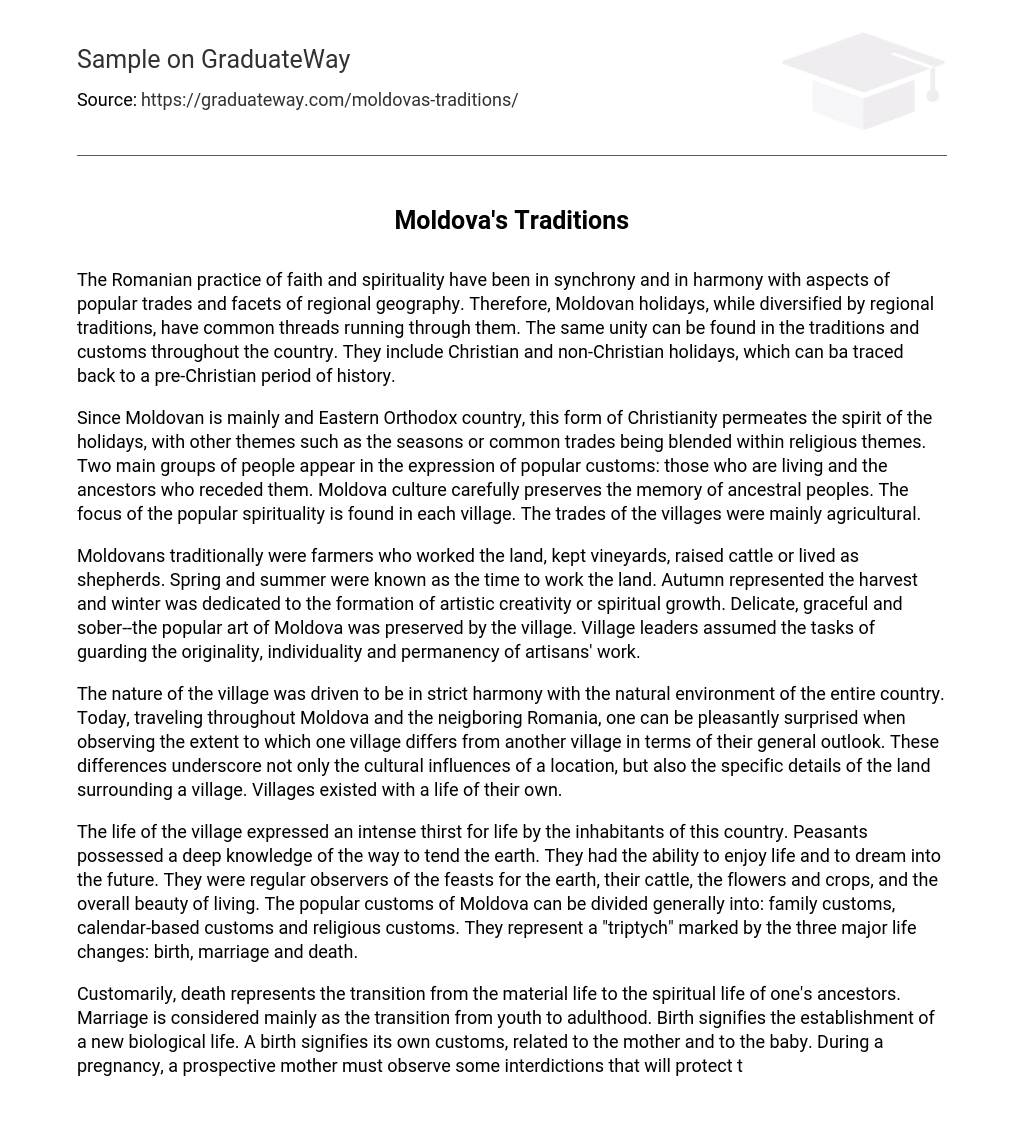The Romanian practice of faith and spirituality have been in synchrony and in harmony with aspects of popular trades and facets of regional geography. Therefore, Moldovan holidays, while diversified by regional traditions, have common threads running through them. The same unity can be found in the traditions and customs throughout the country. They include Christian and non-Christian holidays, which can ba traced back to a pre-Christian period of history.
Since Moldovan is mainly and Eastern Orthodox country, this form of Christianity permeates the spirit of the holidays, with other themes such as the seasons or common trades being blended within religious themes. Two main groups of people appear in the expression of popular customs: those who are living and the ancestors who receded them. Moldova culture carefully preserves the memory of ancestral peoples. The focus of the popular spirituality is found in each village. The trades of the villages were mainly agricultural.
Moldovans traditionally were farmers who worked the land, kept vineyards, raised cattle or lived as shepherds. Spring and summer were known as the time to work the land. Autumn represented the harvest and winter was dedicated to the formation of artistic creativity or spiritual growth. Delicate, graceful and sober–the popular art of Moldova was preserved by the village. Village leaders assumed the tasks of guarding the originality, individuality and permanency of artisans’ work.
The nature of the village was driven to be in strict harmony with the natural environment of the entire country. Today, traveling throughout Moldova and the neigboring Romania, one can be pleasantly surprised when observing the extent to which one village differs from another village in terms of their general outlook. These differences underscore not only the cultural influences of a location, but also the specific details of the land surrounding a village. Villages existed with a life of their own.
The life of the village expressed an intense thirst for life by the inhabitants of this country. Peasants possessed a deep knowledge of the way to tend the earth. They had the ability to enjoy life and to dream into the future. They were regular observers of the feasts for the earth, their cattle, the flowers and crops, and the overall beauty of living. The popular customs of Moldova can be divided generally into: family customs, calendar-based customs and religious customs. They represent a “triptych” marked by the three major life changes: birth, marriage and death.
Customarily, death represents the transition from the material life to the spiritual life of one’s ancestors. Marriage is considered mainly as the transition from youth to adulthood. Birth signifies the establishment of a new biological life. A birth signifies its own customs, related to the mother and to the baby. During a pregnancy, a prospective mother must observe some interdictions that will protect the baby from supposed evil spirits. The birth itself represents the transition from the unknown to the known world–or from the “blackness” to the “whiteness. “





